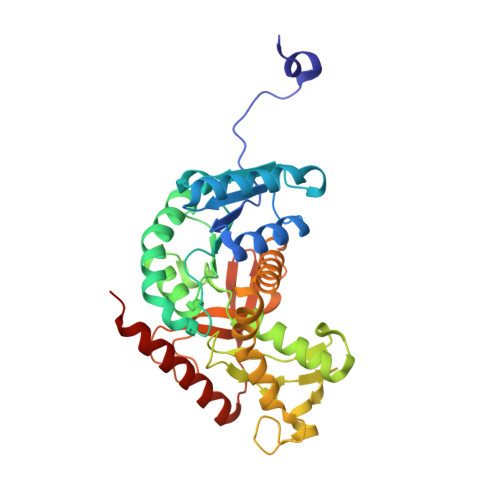Small molecule cores demonstrate non-competitive inhibition of lactate dehydrogenase.
Andrews, B.A., Dyer, R.B.(2018) Medchemcomm 9: 1369-1376
- PubMed: 30151092
- DOI: https://doi.org/10.1039/c8md00309b
- Primary Citation of Related Structures:
6CEP - PubMed Abstract:
Lactate dehydrogenase (LDH) has recently garnered attention as an attractive target for cancer therapies, owing to the enzyme's critical role in cellular metabolism. Current inhibition strategies, employing substrate or cofactor analogues, are insufficiently specific for use as pharmaceutical agents. The possibility of allosteric inhibition of LDH was postulated on the basis of theoretical docking studies of a small molecule inhibitor to LDH. The present study examined structural analogues of this proposed inhibitor to gauge its potency and attempt to elucidate the molecular mechanism of action. These analogues display encouraging in vitro inhibition of porcine heart LDH, including micromolar K i values and a maximum inhibition of up to 50% in the steady state. Furthermore, Michaelis-Menten kinetics and fluorescence data both suggest the simple, acetaminophen derivatives are non-competitive in binding to the enzyme. Kinetic comparisons of a panel of increasingly decorated structural analogues imply that the binding is specific, and the small molecule core provides a privileged scaffold for further pharmaceutical development of a novel, allosteric drug.
Organizational Affiliation:
Department of Chemistry , Emory University , Atlanta , 30322 , Georgia , USA . Email: briandyer@emory.edu.
















